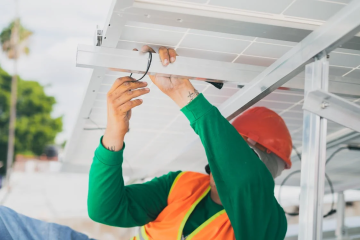In the realm of home comfort, few systems are as vital as air conditioning and heating. These systems are not only about maintaining a cozy environment but also play a significant role in health, productivity, and overall well-being. From controlling indoor temperatures to managing humidity levels, modern HVAC (Heating, Ventilation, and Air Conditioning) systems have become indispensable in both residential and commercial settings.
1. Climate Control
The primary function of air conditioning and heating systems is to regulate indoor temperatures according to seasonal variations. During scorching summers, air conditioning provides a cool refuge, preventing heat-related illnesses and ensuring a comfortable living or working environment. On the other hand, during freezing winters, heating systems keep spaces warm and cozy, protecting occupants from the harsh cold and its associated health risks.
2. Improved Air Quality
Beyond temperature control, HVAC systems also contribute significantly to indoor air quality. They filter out pollutants, allergens, and contaminants, such as dust, pollen, mold spores, and pet dander, ensuring that the air circulating inside is clean and healthy. This is particularly crucial for individuals with respiratory conditions like asthma or allergies, as poor indoor air quality can exacerbate their symptoms.
3. Humidity Regulation
Maintaining optimal humidity levels is another essential function of air conditioning and heating systems. Excessive humidity can lead to mold growth, musty odors, and discomfort, while overly dry air can cause respiratory irritation and damage wooden furniture and flooring. HVAC systems help strike the right balance, creating a pleasant indoor environment without excessive moisture or dryness.
4. Energy Efficiency
Modern air conditioning and heating units are designed with energy efficiency in mind. They incorporate advanced technologies like programmable thermostats, variable-speed fans, and energy-saving modes to minimize electricity consumption while maximizing performance. This not only reduces utility bills but also lessens the environmental impact by lowering carbon emissions.
5. Comfort and Productivity
A comfortable indoor environment has a direct impact on occupants’ well-being and productivity. Whether at home or in the workplace, individuals function better in spaces with optimal temperatures and good air quality. Comfortable environments promote relaxation, better sleep, improved concentration, and overall higher levels of satisfaction and efficiency.
6. System Maintenance and Upkeep
To ensure optimal performance and longevity, air conditioning and heating systems require regular maintenance and upkeep. This includes replacing filters, cleaning ducts, inspecting components for wear and tear, and scheduling regular professional tune-ups by an expert Heating Contractor. Neglecting maintenance can lead to reduced efficiency, increased energy costs, and potential system failures, necessitating costly repairs or replacements.
7. Choosing the Right System
When installing or upgrading HVAC systems, it’s crucial to consider factors like the size of the space, climate conditions, energy efficiency ratings, and budget constraints. Consulting with HVAC professionals can help determine the most suitable system for specific needs, ensuring optimal performance and long-term satisfaction.
Conclusion
In conclusion, air conditioning and heating systems are integral components of modern living, providing comfort, health benefits, energy efficiency, and productivity enhancements. By understanding their importance and investing in proper installation, maintenance, and usage, individuals can create comfortable, healthy, and sustainable indoor environments for themselves and their families or employees. Prioritizing the functionality and efficiency of HVAC systems ultimately leads to improved quality of life and well-being.




